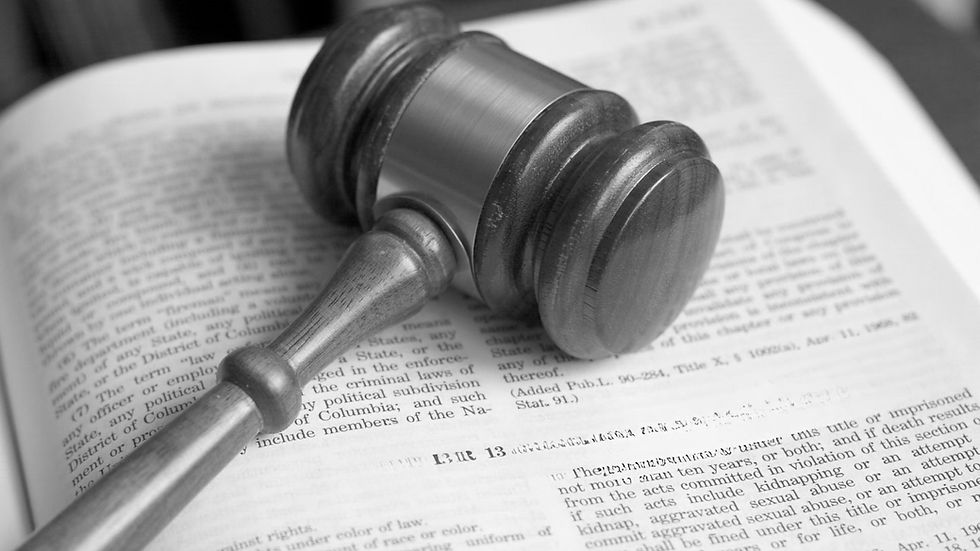Criminal Court vs. Civil Court: Understanding the Differences
- DJP Solicitors
- Sep 27, 2023
- 2 min read
When it comes to legal matters, understanding the nuances of different court systems is crucial. DJP Solicitors is here to guide you through the intricate web of legal proceedings, and one of the key distinctions to comprehend is the difference between criminal court and civil court cases.
Criminal Court Cases
Criminal court cases are initiated when the government, typically represented by a prosecutor, charges an individual with committing a crime. These cases deal with violations of criminal law and can result in penalties such as imprisonment, fines, probation, or even capital punishment, depending on the severity of the offence.
Parties Involved:
● Prosecution: Represents the government and seeks to prove the defendant's guilt.
● Defendant: The accused party who is presumed innocent until proven guilty.
● Judge: Presides over the trial and ensures fair proceedings.
● Jury: In many cases, a group of impartial citizens determines the verdict.
Burden of Proof:
In criminal court cases, the prosecution carries the burden of proving the defendant's guilt beyond a reasonable doubt. This is a high standard to meet, requiring a strong case against the accused.
Civil Court Cases
Civil court cases, on the other hand, revolve around disputes between individuals or entities regarding non-criminal matters. These cases are about resolving conflicts and seeking remedies such as monetary compensation, injunctions, or specific performance.
Areas of Law:
Civil court cases encompass a wide range of areas of law, including but not limited to:
● Contract Law: Disputes arising from contracts, breach of agreements, or failure to fulfil obligations.
● Tort Law: Cases involving personal injuries, property damage, or negligence.
● Family Law: Matters like divorce, child custody, and spousal support.
● Property Law: Disputes over property ownership, boundaries, or landlord-tenant issues.
Parties Involved:
● Plaintiff: The party initiating the lawsuit seeking a remedy.
● Defendant: The party against whom the lawsuit is filed.
● Judge: Oversees the proceedings and ensures adherence to legal principles.
● Jury: Civil cases may involve a jury, but it depends on the nature of the case.
Burden of Proof:
In civil court, the burden of proof is lower than in criminal court. The plaintiff must demonstrate their case by a preponderance of the evidence, meaning that it is more likely than not that their claims are true.
How DJP Solicitors Can Assist You
At DJP Solicitors, we understand that navigating the legal system can be daunting. Whether you are dealing with civil court cases in contract disputes, personal injury claims, or family law matters, our team of experienced solicitors is here to provide expert guidance. We know that each case is unique, and we tailor our approach to meet your specific needs. Our solicitors are well-versed in the intricacies of civil law, ensuring you receive the best representation and guidance throughout the legal process.
In conclusion, the differences between criminal court and civil court cases lie in their nature, parties involved, burden of proof, and areas of law. DJP Solicitors is committed to assisting you in civil court cases, offering comprehensive legal support to protect your rights and interests.
Contact DJP Solicitors today to learn more about how we can advocate for you in civil court cases and beyond. Your legal peace of mind starts with us.




Comments